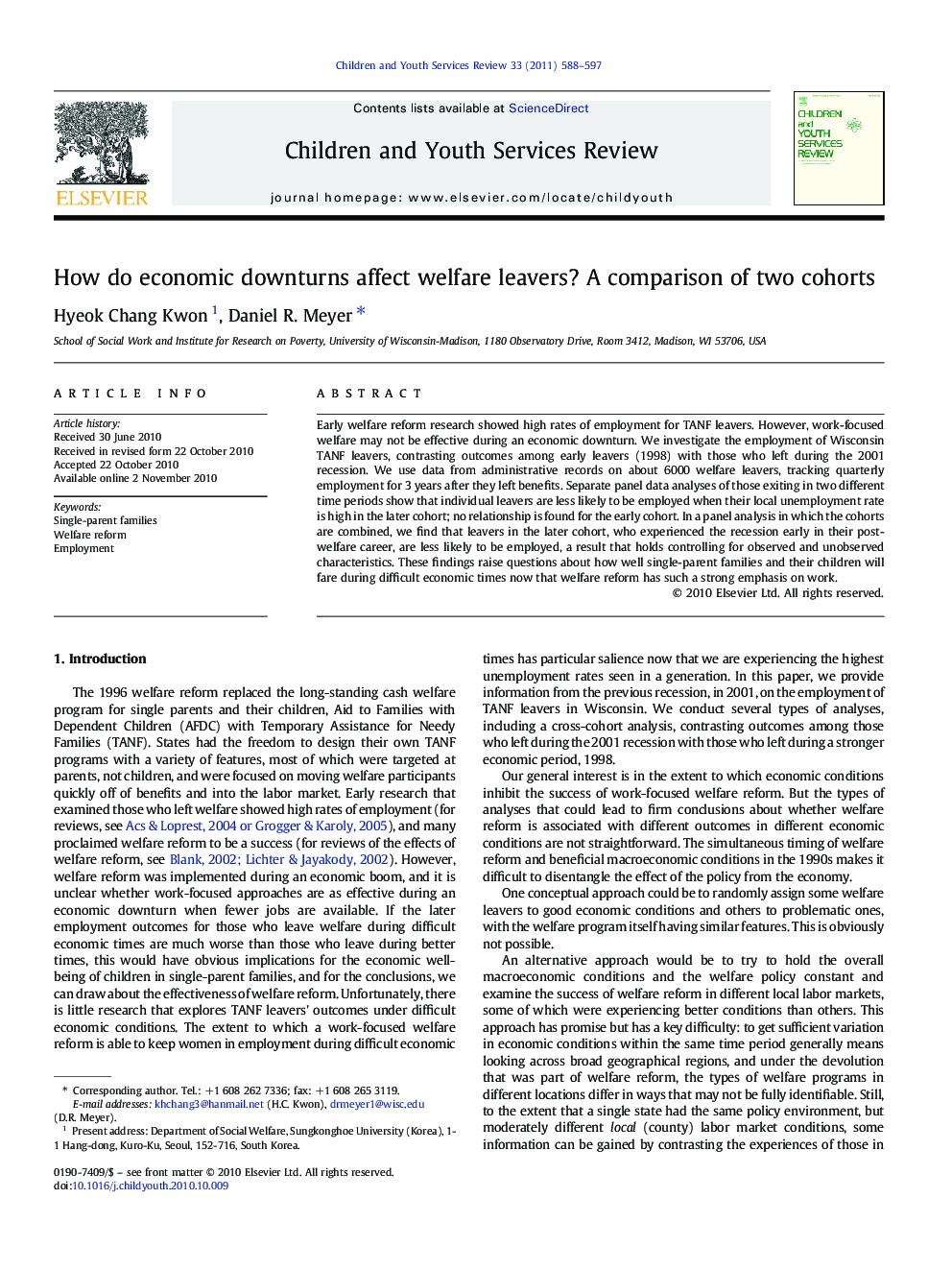| Article ID | Journal | Published Year | Pages | File Type |
|---|---|---|---|---|
| 346327 | Children and Youth Services Review | 2011 | 10 Pages |
Early welfare reform research showed high rates of employment for TANF leavers. However, work-focused welfare may not be effective during an economic downturn. We investigate the employment of Wisconsin TANF leavers, contrasting outcomes among early leavers (1998) with those who left during the 2001 recession. We use data from administrative records on about 6000 welfare leavers, tracking quarterly employment for 3 years after they left benefits. Separate panel data analyses of those exiting in two different time periods show that individual leavers are less likely to be employed when their local unemployment rate is high in the later cohort; no relationship is found for the early cohort. In a panel analysis in which the cohorts are combined, we find that leavers in the later cohort, who experienced the recession early in their post-welfare career, are less likely to be employed, a result that holds controlling for observed and unobserved characteristics. These findings raise questions about how well single-parent families and their children will fare during difficult economic times now that welfare reform has such a strong emphasis on work.
Research Highlights►Little research has focused on outcomes for work-based welfare during recessions. ►Welfare leavers' outcomes are found to be closely related to local unemployment rates. ►Analyses comparing two cohorts and using panel data are generally consistent. ►Findings raise questions about the usefulness of a work-focused welfare strategy.
